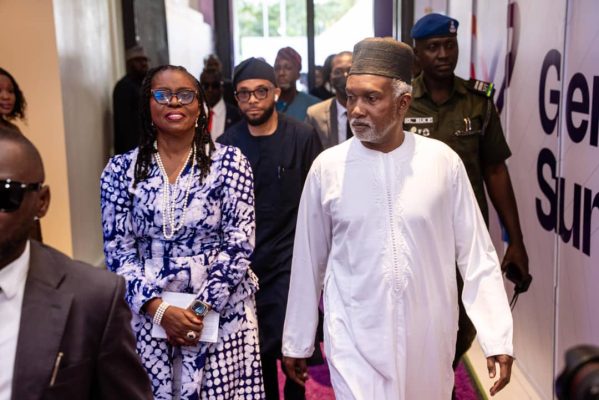The Minister of Foreign Affairs, Ambassador Yusuf Maitama Tuggar, has made a strong call to African governments, development partners, and the private sector to integrate gender and youth inclusion into the core of economic diplomacy, warning that without equitable growth, Africa’s transformation will remain fragile and incomplete.
Speaking at the 2025 Gender and Inclusion Summit, during a High-Level Plenary session titled “From Aid to Investment: Leveraging Economic Diplomacy for Africa’s Inclusive Development,” Tuggar said that the time has come for the continent to move from dialogue to deliberate action.
The summit, organised by the Policy Innovation Centre, brought together leaders from across sectors to explore pathways for inclusive prosperity on the continent.
“Africa stands at the cusp of transformation. With a projected population of 2.5 billion by 2050 and a current GDP of $2.8 trillion, we possess the human capital and resources to drive global growth. But growth without inclusivity is fragile, and prosperity without equity is unsustainable,” Tuggar said.
Drawing from the Council on Foreign Relations’ 2019 report, the Minister presented striking data on the cost of exclusion.“If women participated in the Nigerian economy at the same rate as men, our GDP could increase by $229 billion by 2025. This isn’t just a social issue; it’s a direct economic imperative,” he noted.
Tuggar outlined the ongoing inequalities facing women across the continent, pointing to education, economic participation, and political representation as the most pressing barriers. He cited a 2024 UNESCO report showing that 7.6 million Nigerian girls are currently out of school, with nearly half of them in the North-West and North-East.
“In Africa, women comprise 70% of the informal economy but remain largely excluded from formal trade structures. In Nigeria, women hold only 4.2% of seats in the National Assembly, far below Africa’s average of 27.3%. This underrepresentation in governance, business, and finance is a missed opportunity for growth,” he stated.
He also highlighted disparities in education, noting that only 69% of African girls complete primary school compared to 73% of boys, while just 43% of girls finish lower secondary school.
In response to Nigeria’s inclusive foreign policy shift under 4-D diplomacy agenda, Tuggar revealed that Nigeria’s foreign policy has been recalibrated under President Bola Ahmed Tinubu’s 4-D Diplomacy Agenda, focused on Development, Demography, Diaspora, and Democracy, all anchored in inclusivity.
“Nigeria required a foreign policy with a fresh, all-inclusive purpose. Each pillar of our diplomacy now prioritises the inclusion of women and youth, not just as beneficiaries, but as co-creators of policy and prosperity,” he said.
This approach, he said, has birthed regional initiatives such as the Regional Partnership for Democracy (RPD), which aims to foster accountable governance by strengthening democratic institutions and promoting equitable participation. “Central to the mission of RPD is ensuring that women and youth are not just present, but empowered economically and politically,” Tuggar explained.
He also referenced the West Africa Economic Summit (WAES), hosted in Abuja earlier this year, which resolved to dismantle barriers to finance, cross-border opportunities, and market access for women.
Tuggar cautioned that without targeted interventions, even promising trade initiatives like the African Continental Free Trade Area (AfCFTA) and Pan-African Payment and Settlement System (PAPSS) could perpetuate exclusion.
He however praised Nigerian financial institutions such as UBA, Access Bank, GTCO, First Bank, and Zenith Bank for their leadership in cross-border banking and digital integration, and commended the growing presence of women CEOs in top financial roles.
“These systems, designed to boost trade, can inadvertently become barriers if women lack access to development finance, digital tools, and regional networks. This is a positive trend, but we must accelerate it. Women must lead, not just participate,” he said.



